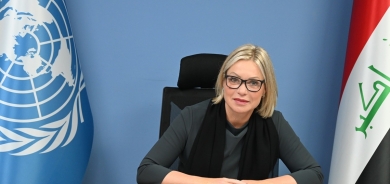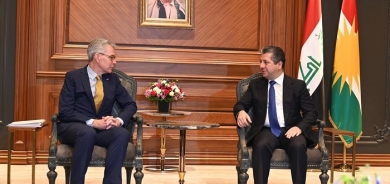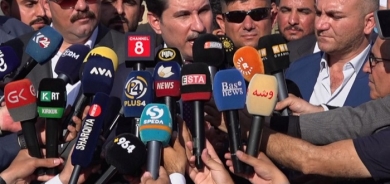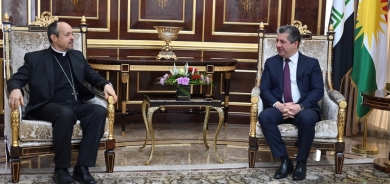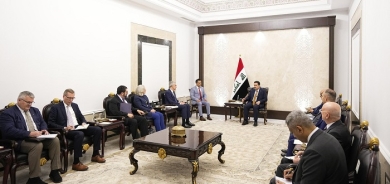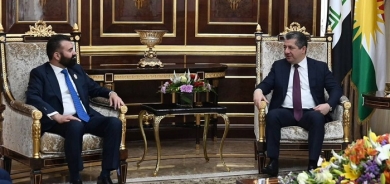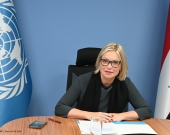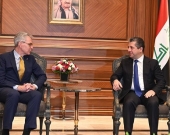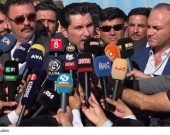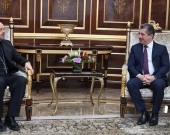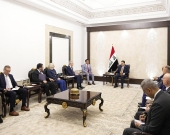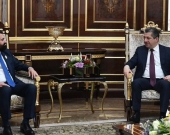War in Ukraine ‘has changed the equation’ between the West and Saudi’s MBS
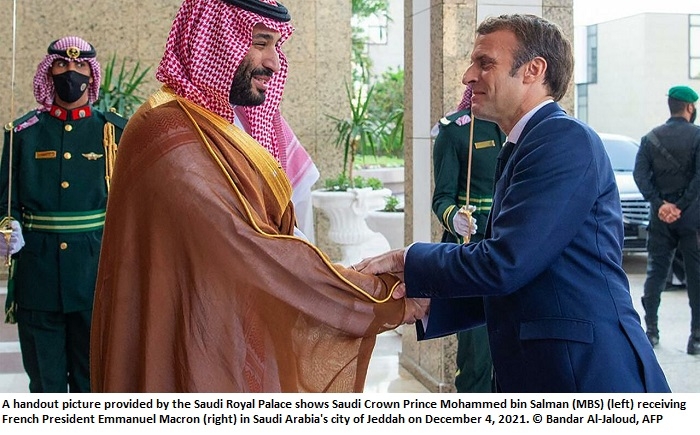
French President Emmanuel Macron will host Saudi Crown Prince Mohammed bin Salman (MBS) on Thursday for a working dinner and talks at the Elysée Palace. The meeting comes as Western nations, including France, seek to diversify their oil supplies amid the war in Ukraine and revive a nuclear deal with Iran. Macron has indicated that he intends to raise the subject of human rights with MBS amid criticism from rights groups over the visit.
Paris is the second stop of MBS’ first European Union visit since the 2018 murder of prominent Saudi journalist Jamal Khashoggi in the kingdom's consulate in Istanbul. It is seen as the latest attempt by Western powers to rehabilitate Saudi Arabia's de facto leader, who US intelligence concluded had "approved" the operation to "capture or kill" Khashoggi, and revitalise their relations with the oil-producing country.
France and other EU countries have been set on diversifying their energy sources since Russia invaded Ukraine on February 24, and as Russian energy giant Gazprom has slashed gas deliveries to Europe. Macron, along with US President Joe Biden, wants Saudi Arabia, the world’s largest oil exporter, to boost production and stabilise prices.
French opposition figures and human rights groups have criticised Macron’s decision to host MBS. Amnesty International secretary general Agnes Callamard tweeted ahead of the crown prince's visit that "the rehabilitation of the murderous prince will be justified in France as in the United States by arguments of realpolitik. But it's actually bargaining that predominates, let's face it".
A senior aide to Macron said Thursday on condition of anonymity that "the president will raise the issue of human rights as he does on each occasion with Mohammed bin Salman. He will talk about it in a general way, but will also take the chance to raise individual cases."
The official added that the two leaders will also discuss oil production and the Iran nuclear deal.
Fatima Abo Alasrar, a non-resident scholar at the Middle East Institute, spoke with FRANCE 24 about the controversy surrounding MBS’ visit to Paris.
FRANCE 24 : Why this trip, why this rehabilitation, what has changed?
Fatima Abo Alasrar: This trip comes at a very critical time, as the war in Ukraine has really changed the political and economic equation. France, among other European countries, is trying to find other alternative sources of energy and also trying to raise the oil production and to this effect, we’ve seen a lot of changes in the region. We’ve seen President Biden’s recent visit to Saudi Arabia during which he indirectly requested an increase in oil production in order to stabilise the energy resources and basically back off from getting oil sources from Russia. So, it's in a moment of need, a greater need that the West seems to be realigning and reaching out to other Gulf countries in order to solidify their own interests at home.
This is clearly a victory for MBS. What does this say about accountability on the world stage?
It’s a very complicated question. There has been accountability to some extent, there has been pursuit and I think France and other European countries pretty much know exactly who they’re dealing with. The problem is we see double standards everywhere, if we want to care about human rights, we have to care about it everywhere but certain exceptions are being made. There are exceptions that are being made for China, there are exceptions being made for Russia, even the United States is not fully immune. There are human rights abuses in, whether it's Guantanamo Bay, whether it's in immigration issues that we’re seeing or even racial issues that we’re seeing in the United States, for example. So, human rights has to be dealt with but we also have to find a way to influence positively in this important category and part of this has to come from being able to talk to adversaries in some ways. But the Saudi kingdom is not necessarily an adversary as it has a historic relationship with Europe and the United States and a positive relationship on that level.
I think it’s fair to say that MBS has been ostracised by the international community to some extent for the past four years. He is now obviously desparate to bolster Saudi Arabia’s regional power, especially when it comes to Iran. He wants to make his point of view very clear to the rest of the world.
MBS is really trying to build relationships with the West but at the same time, the Saudis are taking more or less reconciliatory tones towards Iran. They’re trying to say that they’re willing to work with whatever they can have because Iran is really having an influence in the region, in the Gulf, through its militias, that fact cannot be denied. And the Saudis have really failed to deal with the threat of these militias, from a military perspective, so I think that they are seeking a diplomatic solution alongside other Western countries, as they know the threat is not really going away. But at the same time, they are trying to realign with other Western countries to say that Iran should not be getting a carte blanche.
France has been pushing for a nuclear deal. Do you think MBS is going to hear that message?
I don’t think the Saudis will favour a nuclear deal with Iran, given Iran’s hostile attitude and refusal to deal with the [International Atomic Energy Agency]. So there’s several factors. The Saudis are really concerned, they’re not going to push for it but if the Iran deal is to happen, if it is to take place, then the Saudis and Gulf countries need to be somewhat consulted and seen as a partner in this process, rather than an entity that is imposed on. Therefore, the West has to somewhat change its views and realise that there’s a lot at stake: the stability of the Saudi kingdom, Israel, Yemen, there are so many countries that are being affected. [Western countries must ask themselves] how can we really approach this relationship from a partnership perspective rather than simply saying, here’s the deal: Do you accept it or do you reject it?
FRANCE 24

